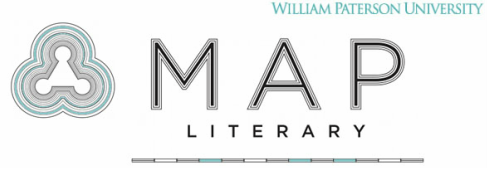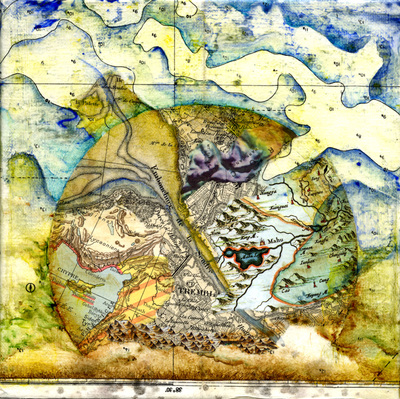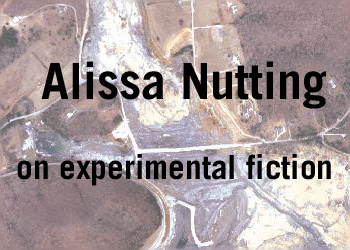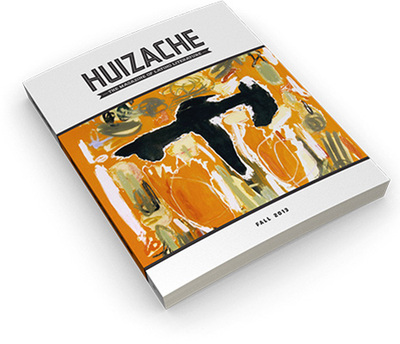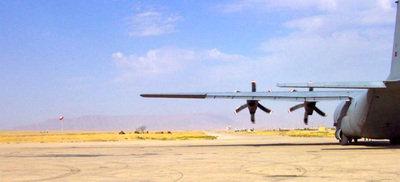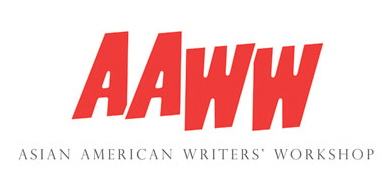KATHRYN HOLZMAN
Eating Meat
They offered me two million dollars if I would eat meat.
The meat was displayed in the same type of metal bowl that I used to feed my cat when I had a cat. On the surface, there were slivers of the same cat food brand that I bought in the supermarket. The kind that smelled like fish regardless of the label on the can. Underneath this slime, there were leftovers from a more palatable stew. I could see carrots and onions amid the slivers of greyish brown beef.
I had no idea what I would do with two million dollars. The bills they flashed in front of me were like a bribe to a disreputable dictatorship. Crisp, new, undoubtedly numbered consecutively. I had no idea whether the cash would fit inside the only suitcase that I owned, a small LL Bean bag on wheels that could be carried on to an airplane, stowed in the overhead compartment. Would the money be visible on the x-ray screens used by airport security? Despite my disgust, I wanted to hold the cash in my hands, shuffle it like cards, smell it like a book right off the press.
I hadn’t eaten meat in years. The very sight of it turned my stomach. For that matter, I had no desire to be rich. I considered the dish in front of me as I looked over the cash. The solicitors watched with disinterest. They were only messengers, doing their job.
Several years ago, I owned a cat. I watched him eat, usually with a bit of repulsion despite my affection for animals. In the end the smell of the food, coupled with the stink of litter, was more than I could bear. I returned him to the shelter where I was sure he would be treated humanely.
The men who had knocked on my door looked vaguely like they belonged in the military. They did not wear uniforms, but their hair was cut short. Their finger nails were clean. They called me “ma’am.” “Ma’am,” the man in front said, “we have a proposition for you.”
When I opened the door, he stood there with two flunkies behind him, one holding the bowl of meat. The other a box full of cash.
You can imagine my surprise. I had just finished my breakfast, a bowlful of bran flakes with a sprinkle of raisins. I hadn’t even finished my second cup of coffee.
I had been debating whether to go to work. My sick days were due to expire at the end of the month. My decision was based on which I found more boring, the repetitive task of my clerical job or the deadening silence of my empty apartment.
Looking at the men, I wondered what database my name was in. What mailing list of vegetarians had been used to select me as the recipient of their offer. Whoever they were, what were they trying to prove? Where did the money come from? So much money. This had to be a governmental program, or at least a significant criminal undertaking with the clout to buy invisibility.
What would happen to me if I were to accept? What would happen to me if I were to refuse?
The men were patient. They could see that I was considering their offer. The rank smell of meat didn’t seem to bother them at all. They stood on my front steps without shifting from foot to foot. They did not seem as if they were concerned about being seen. This was reassuring. At this hour of the morning, most of my neighbors had already left for jobs in the city, but there was a steady flow of traffic down the street. Gardeners arriving to mow lawns.
I offered them coffee. I needed time to think. They followed me into my kitchen, sat down at the small pine table I had purchased from a flea market and covered with a practical, washable tablecloth imprinted with strawberries. They set down the bowl of meat. The dish was not covered. It was meant to entice me.
I poured coffee, asked if they used cream or sugar. They took their coffee black, sipped the hot liquid while they watched me decide.
Under pressure, I tried to think quickly.
I had stopped eating meat because it seemed inhumane, uncivilized. In my twenties, right out of college, I aspired to a certain purity. I volunteered at the animal rescue league in my free time. I only accepted jobs that were socially responsible. I dated men who expected me to pay for my own dinner.
Even now in my thirties, I considered myself virtuous. I missed meat, and even men, very little. If I had wanted a fortune, I could have pursued a career, but time and time again, I was unwilling to compromise my ideals. A series of small decisions have shaped my life so far.
I was certainly tempted. They must have known I was vulnerable.
I dipped a finger in the bowl of meat. The second flunky, who wore a suit and tie, nudged the box of money closer to me with a polished black shoe.
I felt my throat closing, my stomach rising to the ready, poised to reject even the impulse of compromise. My mind was open, but my body was set in its ways.
I closed my eyes. If I could have held my nostrils without feeling idiotic I would have done so. The meat was room temperature, the consistency of glue, of, I would imagine, semen. I longed for a glass of clear, cool water to wash even the idea of it out of my mouth. My ears pounded as if I were watching the most terrifying of movies, the type I had always assiduously avoided.
When I opened my eyes, the military-like man, the leader of the pack, handed me a spoon.
#
If I took the money, I would need to get away. Travel. The sickening weight of some animal’s carcass in my stomach would signal a metamorphism. A new me. A grand repudiation of all I had been to date.
This was a big step, not to be taken lightly. Perhaps because I associated meat with violence, I looked with distrust at the men sitting at my kitchen table despite their polished, corporate appearance. Fingering the spoon, theirs not mine, I asked the head honcho “Who are you?”
“You don’t remember?” he answered.
I didn’t. I examined his face, smooth skin, glib expression, hair brushed like the carpet of an elegant hotel room. His face belonged in an advertisement for superficial things, gold watches or expensive liquors. Things no one really needs, but which we are constantly told that we want.
“You interviewed at our firm,” he said. “But you never returned our calls.”
In ten years of transitory clerical jobs, I had gone on many interviews. The interviewers and their cookie cutter offices easily blurred in my memory. The elevator rides up into the entrails of high rise buildings, the fluorescent-lit floors checkered with cubicles elicited only a memory of despair.
“60 words a minute, MS Office expertise, a bad attitude. You left quite an impression.”
That would explain how they had my address. They had access to my resume, identifying information and work history. Had I mentioned my vegetarianism in the interview? It did not seem very likely although I did prefer to lay things out up front.
“Bad attitude?”
“We were, we are, offering you an opportunity. Nothing to sneeze at. You wore jeans to the interview and didn’t thank us for our time.”
I might as well have been little red riding hood in conversation with the wolf. Every instinct told me to pull my red cape around me and escape into the forest.
Except I was sitting in my own kitchen, already late for work. There was this nauseating bowl of meat in front on me.
“What do you have to lose?” he asked with an insincere smile. I suddenly realized why I did not trust him. His face was entirely generic, obviously reconfigured. Nature did not provide such symmetry. His lips were unnaturally inflated. His cheeks were contoured to a perfection that did not exist in real life.
My life had finally gotten interesting.
The money was probably counterfeit.
#
A week after I had taken my cat to the animal shelter, I returned to confirm that the animal had been successfully adopted. In cages which reeked of urine, cats called out for my attention. The cat that I had turned in was black with one white paw and a wet, pink nose. In our two months of cohabitation he had become quite fond of me. When I came home from work, he stretched out his paws in greeting. In my lap, he kneaded the flesh of my thighs. If I did not cut his nails, the act could be quite painful. I understood that it was a gesture of affection.
In the shelter’s “cat room,” it was almost impossible to find my cat among the throngs of abandoned pets. Animals, like people, in large groupings become anonymous, overwhelming. The more aggressive animals prowled in the front of the cages, calling out for attention. The others cowered at the back of cages, shaking with fear.
I walked the length of the cat room three times, but never found my cat. He had, I assured myself, been adopted, hopefully into a loving family. After seven days, they had told me when I surrendered him, cats who have not been claimed were euthanized. I returned to the shelter that day because I could not have lived with myself if I were responsible for his death. Walking home, I had a violent allergy attack, sneezing until my nose ran like a river. Clearly, I was better off without him.
#
I racked my brain, trying to remember which interview the men referred to.
I had on occasion worn jeans to a job interview, especially to Tech companies which purported to have a looser corporate culture. Of course, I quickly learned that the foosball tables and taco stations in these companies were strictly for engineers, mostly men, who were thought to be more creative in a less structured environment. In almost every case, the “administrative staff” (secretaries, mostly women) were required to clock in. Now that everyone had a keyboard, typing speed was no longer a gateway, so it intrigued me that this statistic was of significance.
The men at my table were clearly not engineers.
Asked to clock in, it is possible that I had told them I was not interested.
More and more, I was thinking that plastic surgery was the key to their identity. Why were these men in need of disguise? Why? Their proposition took on intriguing possibilities. Suddenly the prospect of crossing an airport waiting room with two million dollars in my LL Bean bag seemed less unlikely. Transformation was clearly the name of the game.
I may have missed this the first time around. It was too late for me to go to work now. I might as see where all of this was leading.
#
You probably wonder what kind of meat we are asking you to eat?”
It hadn’t occurred to me to ask. “I don’t eat meat. Period.”
“We know.” Again, the insincere smile. “Your love of animals has been thoroughly documented.”
This threw me. Yes, I briefly had a pet. And yes, I made yearly donations to the ASPCA. But you don’t see me walking a dog with a plastic bag over my hand to pick up the poop. I am hardly the type to hang out in dog parks letting every mutt lick my hand or jump up to look me in the eyes.
Documented, where?”
He smiled but provided no further information. I didn’t expect that he would.
By now the meat had begun to congeal, a solid layer of white fat coated the turd-like lumps underneath. If there was any chance of consuming this repulsive mix, sooner was clearly better than later. I was certain I was better off not knowing what the bowl contained, but the fact the he had asked now concerned me. It was, perhaps relevant, to the outcome.
It was the money that called to me. That purred at my feet.
#
The man at the table asked: “Mind if I smoke?”
“I do.” I answered. It had been years since anyone I associated with smoked tobacco. Who even asked that anymore? In my world, smokers cowered in corners, inhaling furtively as they faced a wall the requisite number of feet from a public entryway. Even parks forbid the habit. Who were these men, dangling vices like the elaborate lures to hook fish too easily deceived by their illusions?
He chuckled. “Yeah, I thought so.” His smile was amused, just short of condescending. His expression remained benevolent. This man was clearly in no hurry. He seemed to be enjoying himself. “A bad habit, I agree, but we all have them, n’est ce pas?” He spoke like a suave politician, an ambassador, the most recent James Bond stepping into the role effortlessly.
“What is the name of your company again?” I asked, eying the pack of cigarettes he set on my kitchen table. “I don’t remember meeting you. I can’t recall the interview you refer to.”
And then I wondered. Why did they care? If I ate meat or not, what difference did it make to them. Undoubtedly their company had their choice of applicants for the job. It was unlikely that I was the most qualified.
The other men drank their coffee in silence. They too were watching me.
It had been that kind of a year. I had voted for a losing candidate. The businessman who had been elected president had won by renouncing everything I believed in. Even though I doubted his sincerity, his proclamations during the campaign had re-awakened a hunger for blood. Barbecue restaurants were opening on every corner. Whole pigs on spits, poultry impaled on rotisseries, drops of fat plopping with a sizzle into aluminum drip pans. Our new leader puffed on fat Cuban cigars, denying the best science that told him that tobacco was deadly. I was not the only one questioning my most profound beliefs.
And now there was this money. And this man.
“My name is Damian,” he said. “I doubt you will ever forget me.” And he said it as if he meant it, as if it mattered to him. As if I mattered to him. The flash of the lure. I salivated for what he offered even as the meat in front of me smelled increasingly rancid.
There are times in our lives when we act in ways we do not understand. The first man who ever made love to me, who made me come, smoked almost non-stop. In bed, he would lie beside me making smoke rings in the air. “No one will ever make love to you like I do,” he said and I knew, even at that moment, that he was right, but that his sexual prowess was not enough and eventually I would need to move on. That my brain would eclipse my bodily hunger and this realization would guide me in my decisions. I believed I had taken a higher path
But I still remembered that man. Damian reminded me, of everything I thought I had given up. And he was right, not only because of the money and the smell of pheromones that was growing stronger by the minute in my little, tidy kitchen, but because it was in my nature, our human nature, to crave that which made our ancestors stronger. The feasts of dead animals that hunters shared around the campfire gave them strength for the cold winter to come.
As if he could read my mind, the man pushed the bowl of putrid meat in front of me. His eyes met mine; his sculptured mouth smiled. Nothing could have been more perfect. “My dear, why resist?” he asked.
They offered me two million dollars if I would eat meat.
If you ask me today, I wouldn’t even admit that I didn’t need the money. Like a hungry alley cat, I lapped it up, his reassuring hand on my shoulder, the promises I knew he would not keep. He was a big man, a man who exuded confidence. This emissary, this cyborg of the new order who knew what I needed, who told me what I wanted.
When he left, taking everything with him, I never told anyone what I had done. The next day I arrived at work on time, sat down at my desk, and waited for the morning break. At the stroke of ten a.m., I joined the smokers outside the building’s basement door. It had turned cold and we sucked on our cigarettes as if they could warm us. As if the clouds of smoke that we exhaled around us could protect us from the inevitable consequences of our actions. At lunch, I walked with my new friends to the fast food joint down the block. We ate burgers and dipped French fries in catsup the consistency of blood.
Copyright © Nov 2017 Map Literary and Kathryn Holzman

Kathryn Holzman lives and works in New England with her husband, a digital artist. She has had short stories published in The Adirondack Review and Atticus Review and has published a chapbook of short stories, Migrations. She is currently at work on a novel set in Silicon Valley.
